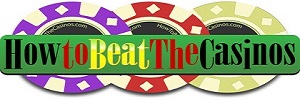Are Online Slots Rigged? Let’s Talk Truth and Tech
Kia ora, friends—it’s Dave the Gambler from HowToBeatTheCasinos.com, and today we’re answering one of the most asked (and feared) questions in the gambling world: Are online slots rigged?
It’s a fair question. You’re sitting at home, spinning reels, watching your balance slowly disappear, and it’s easy to wonder—are these games fair? Or are they stitched up by the casino to bleed you dry?
I watched a popular video this week titled “Are Online Slots Rigged?”, and I reckon it did a good job explaining the mechanics. But let’s go deeper. Let’s strip away the fluff and explain how RNGs work, what regulations are (and aren’t) in place, and whether you can actually trust online pokies with your hard-earned dollars.
Let’s Start with the Tech: What’s an RNG?
Every legit online slot runs on an RNG, or Random Number Generator. This little algorithm is the heart and soul of every spin. It runs constantly in the background, generating thousands of number sequences every second—even when you’re not pressing the spin button.
When you do hit spin, the game grabs the current sequence and matches it to a pre-set table of results—like reels and symbols. So the outcome of your spin is locked in the moment you click. The reels spinning on your screen? Just a visual effect. The outcome’s already been decided by the time they start moving.
This randomness is meant to ensure fair play. The odds are baked in. But here’s the thing—not all RNGs are created equal.
The Licensing Matters: Regulated vs. Rogue
If you’re playing at a licensed online casino—say, one registered in the UK, Malta, or New Jersey—then yes, the RNG has been independently tested and certified. These casinos are regularly audited, and their games must meet return-to-player (RTP) benchmarks, often between 94% and 97%.
That means, over the long term, the game will return 94–97% of all money wagered to players—not you personally, but to the player base as a whole. You might win big, you might lose everything. But the math is real.
Now, if you’re playing on a shady offshore site with no real license, or one buried under some mystery regulator in the Caribbean? Then yes—you might be getting stitched up. These unlicensed casinos don’t follow the rules, and their RNGs aren’t independently verified. They can mess with the code. They can tweak payout frequencies. And they do—because there’s no watchdog stopping them.
But Dave, What About the “Cold” Streaks?
We’ve all been there—you hit 100 spins without a bonus and think, “This can’t be random.” But guess what? It can. RNGs are cold-hearted. They don’t remember your last spin. They don’t care how long it’s been since your last hit.
You could go 300 spins without a win, then hit two bonuses in a row. That’s the nature of randomness. It’s not evenly distributed, and it doesn’t play fair in the way we think “luck” should. It’s math, not magic.
But yes—it feels brutal. And that’s why you need to manage your expectations. Online slots are built for entertainment, not guaranteed return.
Can Online Casinos Actually Cheat?
Let’s be honest—some do. But only the dodgy ones. Reputable casinos have too much to lose. If a licensed platform started rigging games, they’d be shut down by regulators faster than you could say “Wild symbol.”
What you really need to watch for are sketchy software providers. Stick with known names like:
- NetEnt
- Microgaming
- Play’n GO
- Pragmatic Play
- Big Time Gaming
- IGT
These companies build games for casinos, and their RNGs are audited regularly. Their reputations depend on fairness.
How Can You Protect Yourself?
Here’s how to gamble smart online:
- Only use regulated casinos: Look for licenses from UKGC, MGA, or New Jersey DGE. Don’t just trust the website logo—verify the license on the regulator’s website.
- Check the RTP: Many games list it in the info tab. Anything under 94% isn’t worth it.
- Avoid autoplay for long sessions: It’s easy to zone out and burn through your bankroll in minutes. Stay engaged.
- Use your own stop-loss: The casino won’t stop you from spinning till broke. You’ve got to stop yourself.
- Stick to trusted game providers: If you don’t recognise the software name, Google it before you play.
Online vs. Land-Based—What’s Safer?
Funny enough, online slots often have better payout rates than land-based pokies. Why? Lower overheads. Online casinos don’t have to pay for waitstaff, hotel rooms, or physical machines. That means they can offer higher RTPs.
In New Zealand, most land-based pokie machines return around 85–90% to players. Online, you can often find games offering 96% or more. Over time, that makes a big difference.
But again—it only applies if the online game is legit.
So… Are Online Slots Rigged?
If you’re playing at a dodgy, unlicensed casino—yes, you’re risking being scammed.
If you’re playing at a well-regulated online casino, with reputable game software—no, they’re not rigged. They’re random, fair, and based on audited algorithms. But they still have a house edge. And they’re still designed to take more than they give, especially over time.
So don’t play thinking you’re going to beat the system. Play for fun, play responsibly, and only play what you’re willing to lose.
Final Thoughts
The myth that online slots are all rigged is both right and wrong. It depends where you play. It depends what you believe. And it depends how much you know about the tech behind the reels.
Don’t let emotion drive your spins. Learn how it works. Pick casinos like you’d pick a surgeon—licensed, trusted, and with a clean track record. And when you win? Celebrate. When you lose? Walk.
That’s the gambler’s way. And it’s the only way you’ll keep the game fun, safe, and maybe—just maybe—profitable.
Until next spin,
—Dave the Gambler

